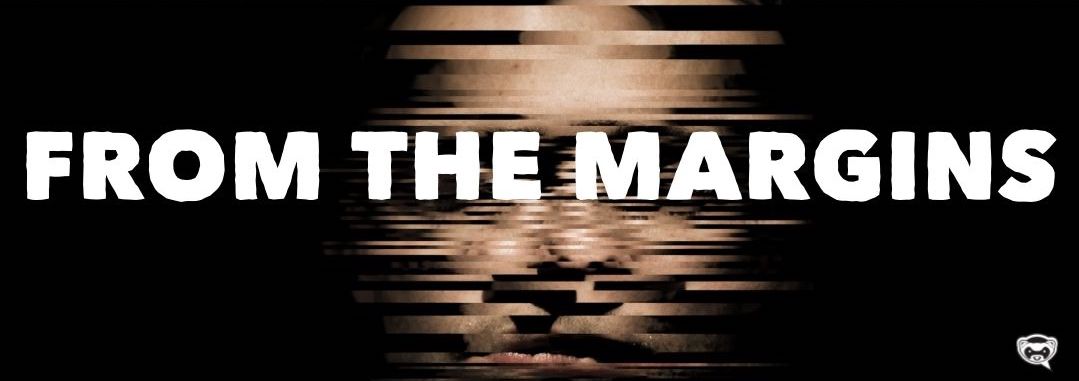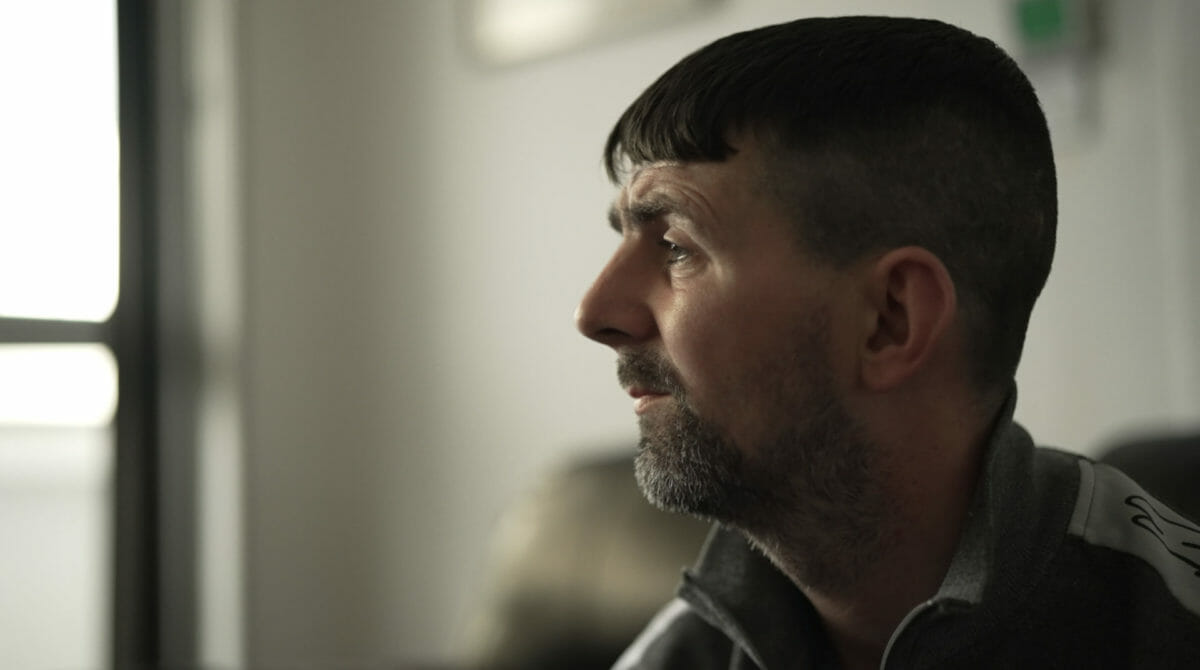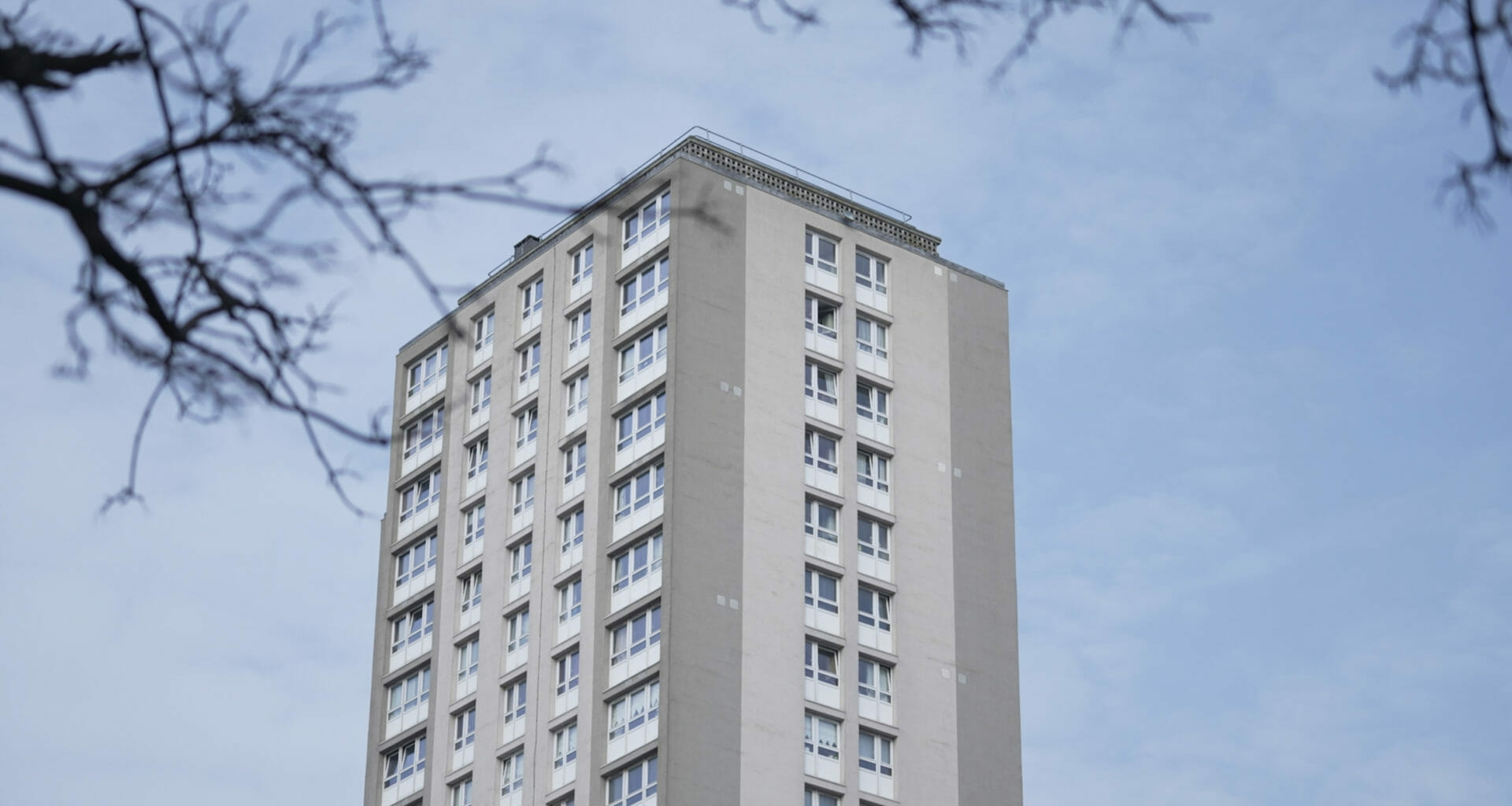
Michael dials the number for the alcohol and drug crisis centre and holds the phone to his ear. It’s late February, and he’s been going through this ritual for three days.
It is almost a year since the 36-year-old from Glasgow lost his partner to a drug overdose. He is struggling to cope with both his grief and his drinking, and trying to get help.
So far he’s had an assessment at the city’s crisis centre – which offers 20 beds for a safe and structured alcohol and drug detox. But as yet there have been no spaces available.
Today could be the day when one opens up. On the other end of the call, the phone starts to ring.

Making the links
We’re here to document Michael’s journey as part of From the Margins – a collaborative project which has seen The Ferret train-up a small team of citizen journalists. Between them, they have lived experience of homelessness, addiction, mental health issues, trauma and the care system.
In the course of this project we’ve met dozens of people who, like Michael, know what it means to be living on the margins – excluded due to a combination of addiction, housing issues and brushes with the criminal justice system.
Often they’ve experienced years of trauma and difficult early childhood experiences.
The people we’ve met – in a series of focus group meetings led by our citizen journalists in Glasgow and Dundee – have told us it’s time to see the links between growing up in the care system, the pain of having their own children removed from their care and the impact of that distress on their wellbeing.
We’ve documented familiar patterns. Many are living in homeless hostels with mice and crushing rules and regulations. There’s poverty in this mix and struggles to access benefits.
Some have spent time in prison, often for crimes as minor as shoplifting, driven by their addiction. Several have experienced extreme violence or sexual abuse.
Most have lost people, due to alcohol or suicide. Almost all say they have poor mental health.
The issues might sometimes seem separate. But they spiral into each other.
About 870,000 – or 16 percent – of Scots will experience homelessness, addiction, or brushes with the criminal justice system in their lives, according to research by Heriot Watt University.
The university’s 2019 report – Hard Edges Scotland – estimated that every year 5,700 people in Scotland experience three of these issues, and 28,000 experience two out of the three.
Michael has experienced these overlaps and – often – has fallen between the gaps. He went into care at nine, and has been in prison. He’s had addictions to drugs and alcohol and been street homeless for many years too.
Tam – one of our citizen journalists, who has been in recovery from drugs and alcohol for five years – first met Michael when they were both using drugs and often rough sleeping. And he met him again recently after many years, when things seemed to be going well.
Michael’s in the early days of recovery and trying to move away from the chaos of addiction.
“I don’t want that anymore, I’m sick of that life,” Michael tells us the first time we all meet. “I want to have a normal life. I want a job, I want to be able to go out and afford to go and buy shopping instead of being on benefits.”
Like almost 30,000 people across Scotland last year, he is on a methadone prescription. And, as he explains outside his local chemist when we go along with him, that is a “lifeline”.
“I’ve not took heroin in two years”, he says, after he’s made his daily visit to the chemist on the first day we go to see him. “I’ve stuck to my methadone. So it does work.”
But “there’s definitely judgement about it,” he admits. He wishes there was less stigma and that people knew how much it could help.
There are other things going well for Michael. Later he takes us to visit his home, a once temporary flat in a high-rise building near where he went to an additional needs school as a child.
According to the latest Scottish Government figures there were 1,535 homeless people such as Michael in temporary housing association flats as of 21 March 2022.
But temporary isn’t as short term as people might think. On average people will spend 274 days in housing like this before being offered something more permanent.
Michael is lucky – he is one of an increasing number of people whose temporary flat was “flipped” – a policy introduced during Covid-19 restrictions which allow councils to offer temporary flats as permanent homes.
This, he says, with pride, is his “forever home”. The walls are painted and photos and positive memes hung on the walls.
He can sum up what it means to him in one word. “Stability,” he says. “A place to call home. Somewhere I can put a key in at night and shut the door behind me, and lock the door.
Instead of sleeping under a bridge or getting a sleeping bag and sleeping in a doorway in the town.”
Having a home helps with his recovery. He doesn’t need to drink just to survive. But that doesn’t mean life is easy.
He’s had counselling for the trauma of family separation through the care system but the impact is still palpable.
And there’s been plenty of tragedy in his life. With the anniversary of his partner’s death approaching he’s waiting for grief counselling. “Me and her were…we were forever,” he says.
He’s also struggling for money – as we sit chatting, the lights go out. “Oh, that’ll be the meter,” he says, without skipping a beat.
And then there’s the isolation. As awful as begging and sleeping in the city centre might have been, he was surrounded by people. Here, he’s alone. Bottles of alcohol glint at him behind every shop counter in the area.
Trauma and drug deaths
The rising drug deaths have been well documented in recent years. The latest official statistics from 2020 show 1,339 people died due to drug overdoses.
And deaths from alcohol rose last year too – 1,119 people died in 2020.
So how well are addiction services responding?
With political clamour growing in January 2021 the Scottish Government acknowledged failures and mistakes made – and committed £250m over five years to transform addiction services. Medication assisted treatment (MAT) standards for these services were developed.
With the emphasis on trauma awareness and mental health we need more clinical psychologists and mental health nurses trained
Catriona Matheson, former chair of the Scottish Government’s drug death task force
These should guarantee same day prescribing of methadone or other opiate replacement drugs, as well as ready access to psychological support like counselling and other therapy.
Dave Liddell, chief executive of the Scottish Drug Forum, says it’s essential we get those services right, and to ensure the critical focus on reducing drug deaths does not overshadow the need to also focus on the experience of the living.
“Scotland’s drug problem and tragic drug death statistics are driven by poverty overlaid by generational trauma,” he said.
“We need to make sure we’re enabling people to have a better quality of life and that we are not sowing the seeds for another generation of people with drug problems to emerge.
“People are often self-medicating as a means of coping with trauma. Taking that crutch away without dealing with the underlying issues means that people will almost inevitably fail.”
Approaches to treatment are still often disjointed, he says, with people having to repeatedly “tell their story” to a series of workers who don’t seem able to help.
As a result people stop attending, and have access to services withdrawn because they missed appointments.
Liddell believes that drop-ins should be offered as standard, allowing more people to access help when they need it. The fear is that change isn’t happening fast enough.
Last year a mystery shopper exercise by the Scottish Drugs Forum found only eight out of 95 people were able to get a same day prescription.
One source told The Ferret that they would be “very confident that nowhere is delivering 100 per cent same day prescribing”, claiming “some won’t be delivering it for anyone”.
While there is additional money for Alcohol and Drug partnerships (ADPs) from the Scottish Government, and £4m to implement the standards, some think it is simply not enough to make the intended transformation.
Catriona Matheson, former chair of the Scottish Government’s drug death task force, agrees that it is still “difficult” to access a same day prescription in many parts of Scotland.
She also claims access to psychological support is badly under-resourced. “With the emphasis on trauma awareness and mental health we need more clinical psychologists and mental health nurses trained,” she says.
“We have nurses with huge caseloads. Staff are reportedly leaving this area to move to other areas of the NHS.” Shortages of clinical psychologists are so stark she claims it could take up to five years to address the issue.
Begging for help
So what does all that mean for Michael? The next time Tam meets him, things are not good. He’s drinking again and begging for help. The assessment at the crisis centre has raised hopes.
But even three days later there is no good news. “Nae beds,” says Michael as he puts down the phone. “So I’ve to phone again later on.”
The city centre, where he has begged in the past, is drawing him back in. He says: “The last week’s been chaotic. I’ve got a house and I woke up under a bridge in a sleeping bag. I’m like: “‘Michael, what are you doing? You’ve got a house.””
Michael is just one of hundreds of people who have not been able to access life saving drug and alcohol treatment. The most recent figures show that from 1 April to 30 June last year 332 people across Scotland waited more than the agreed Scottish Government target of three weeks.
Meanwhile, local authority budget cuts have not helped his situation either. In 2019 Glasgow’s health and social care authorities proposed merging two Turning Point detox services – one for drugs, one for alcohol.
Official papers reveal the decision led to savings for authorities of £1.9m over three years. The bed numbers were reduced from 24 to 20. As a result Turning Point Scotland, which runs the service, has to offer beds to those whose crisis seems most pressing.
The experience of the individual who’s seeking rehab can be quite difficult. To get the funding they might have to kind of explain why they want to get there, they might have to – even in the middle of being in addiction – have to go in front of a panel of professionals and explain why they are worthy of the funding.
David McCartney, Scottish Government working group
Patrick McKay, director of operations for Turning Point Scotland, says: “Changing pressures in the adult social care sector have resulted in an increasingly high demand for our services.
Despite this, our colleagues are continuing to engage with people and provide effective support in safe environments to help anyone wishing to address their alcohol and other drug use.”
Meanwhile Michael could opt for a home detox – with the help of Antabuse, which stops your body processing alcohol.
He doesn’t think he’s capable. And he can’t go to the abstinence-based rehab run by Crossreach, because his methadone dose, which keeps him off heroin, is still too high.
Residential rehab
The difficulties with getting funding for residential rehab have long been controversial. Some have claimed that if proper after care is not put in place, it can leave people vulnerable to relapse, which with their tolerance lowered, could be dangerous.
But many credit it with saving their lives.
The reality is, without funding it’s not an option open to most people. On average a stay costs £18,000. A six-week room at the privately run Castle Craig is £35,000.
The costs are perhaps the reason why in years gone by, some rehabs were closed and focus instead was put on community services.
But more recently the Scottish Government has come full circle. Last November Angela Constance, minister for drugs policy, announced that everyone who wanted rehab – and was clinically suitable for it – should get a place.
The Scottish Government made £100m available and is aiming to see 1,000 funded places by 2026.
The From the Margins team wanted to understand how far from this target Scotland was.
Through freedom of information, we found that across Scotland in the last 10 years fewer than 3,000 people received public funding to go to rehab.
In some local authority areas, such as Perth and Angus, numbers were in single figures. The Ferret will publish the figures in full as a member download later this week.
The Scottish Government has also been looking at the barriers to access and last November its working group published a set of reports which highlighted a range of problems.
David McCartney, the working group’s chair, said that the lack of uniformity was part of the problem. “The pathways to rehab, where they exist, are complicated,” he added.
“There’s a diverse array of ways to get there, and funding streams and assessment procedures. Some areas have got written pathways, and some areas don’t.
“The experience of the individual who’s seeking rehab can be quite difficult. To get the funding they might have to kind of explain why they want to get there, they might have to – even in the middle of being in addiction – have to go in front of a panel of professionals and explain why they are worthy of the funding.
And the reasons for that are because in the past, in a lot of areas, the resource that’s been available to pay for residential rehab has been really, really limited.”
To McCartney the question of prioritising rehab over community addiction services, or vice-versa, misses the point. Recovery, he points out, is not a straight road, and neither should treatment be.
“I think we need to get better at helping people understand the menu of options,” he says. “So if someone wants to become abstinent from alcohol or from drugs, then rehab might be a good option for them.
“If someone wants to reduce their harms, and to continue to use drugs, but do it more safely, then we ought to have ways of making that happen as well.
“If it’s about giving them clean injecting equipment, or a place to safely use drugs, or if it’s about even prescribing heroin, then these kinds of things need to also be available. But it needs to be part of a continuum.”
The Scottish Government says it’s working hard to get to this goal.
Constance said: “I’m deeply sorry for every person in Scotland who has been harmed because of the way in which services sometimes create barriers. It has to be individual, it has to be tailored.
“Now, I know that a huge change, not just in terms of how we reform and organise services. It’s a huge change for us as a country.”
For some it’s clear that change is on the horizon. One addiction worker with more than 30 years of experience in the sector said that even seven years ago, he found it incredibly difficult to get people the sort of help they needed.
Now, he claims the dial is shifting. “I firmly believe I am now witnessing a major shift here in Scotland as to how we as a society need to be able to move past the stigma and shame associated with problematic substance use,” he said. “We have come a long way and definitely for the better.”
A note of hope
Meanwhile in Glasgow, more than a month after Michael’s assessment at the alcohol and drug crisis centre, Tam has an update. Michael has been given a place. We grab a quick chat. “I’m excited,” Michael says. “Well, it’s hard to say what I feel, really. But right now, I’m over-the-moon.”
From the Margins is co-produced by Karin Goodwin and citizen-journalists Tam, Michelle and Peter. They have been supported by The Ferret to investigate the overlapping issues of homelessness, addiction and mental health and more.
Watch our From the Margins documentary, co-produced for the BBC’s Disclosure.
Support our journalism by becoming a member for £5 a month, just click here.
As a member you can also access resources on key journalism skills. Use discount code Sale10 for two months free.
With thanks to Shelter Scotland’s Time for Change Glasgow
Photo Credit: Laura Kingwell














